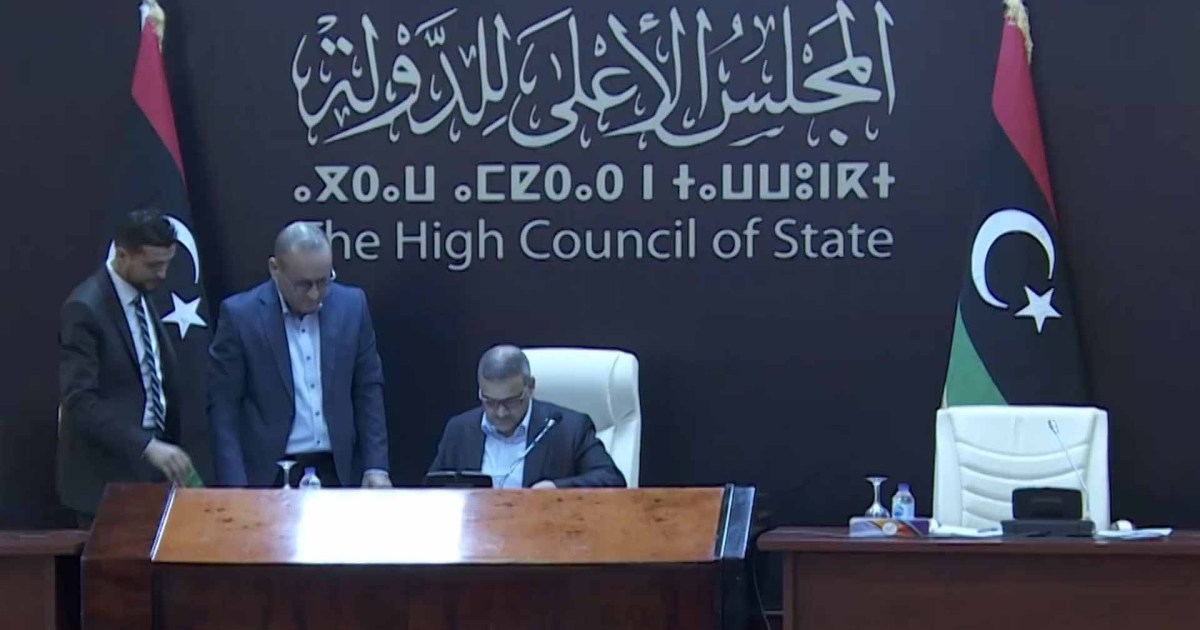The spokesman for the Supreme Council of State in Libya, Muhammad Abdel Nasser, announced the council’s rejection of what he called the Parliament’s continuous violations of the political agreement contained in the constitutional declaration, the latest of which was its issuance of the Parliament Election Law.
Abdel Nasser said that the House of Representatives did not abide by the Skhirat political agreement, which obliges it to agree with the Supreme Council of State regarding this law.
He wrote that the issuance of the Parliament Election Law came without abiding by the text of Article 23 of the Political Agreement, which requires consensus between the two Houses on this law.
Nasser was referring to the Libyan Political Agreement signed in Skhirat, Morocco in 2015.
He added, "The State Council confirms its determination and commitment to the election date on December 24th."
He also pointed out that the House of Representatives and its members will be held responsible, in the event of any "postponement" or "disruption" of the election date, due to "unilateral" actions.
The House of Representatives approved the legislative elections law scheduled for the end of this year, less than a month after the approval of the controversial presidential election law by Parliament Speaker Aguila Saleh without putting it to a vote, which sparked a wave of resentment among a large number of political parties.
Article 12 of the Presidential Elections Law sparked sharp criticism, as it stipulates that a military official can run on the condition that he “stop working and exercising his duties three months before the election date, and if he is not elected, he returns to his previous work.”
It seemed that the article was formulated to suit retired Major General Khalifa Haftar, who, on September 23, initiated a "temporary freeze" of his military duties and transferred the leadership of his forces to Abdel Razzaq al-Nadori, who also holds the position of Chief of Staff of the forces he commands.

